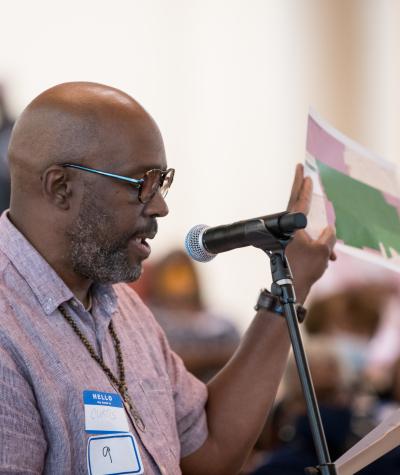Voters should be able to elect their preferred candidates instead of having politicians pick their voters. No matter where we come from, when it comes to having a say in who represents us, most of us want a transparent process we can trust, where voters have an equal voice.
Right now, voters across the country are finding out what state and federal congressional districts they will be in for the next 10 years. This process – known as redistricting – is supposed to reflect changes in the population to enable every person to have equitable representation in our government.
However, in reality, the fairness of those districts is largely dependent on who is drawing the lines.
In Michigan, for the first time, redistricting plans were created by an independent redistricting commission (IRC). IRCs take the power of redistricting out of the hands of partisan legislators, who reliably use the redistricting process to their own advantage, and put it into the hands of citizens.
IRCs are not perfect — for example, CLC advocated for changes to proposed commission maps in Colorado — but the redistricting process undertaken by IRCs is fairer and more transparent than partisan-led processes. Michigan is a great example of that.
Michigan’s IRC, the existence of which CLC has successfully defended in court, is made up of 13 registered voters. Those commissioners were obliged to follow redistricting criteria designed to ensure fairer maps and approved by the citizens who voted to enact the IRC.
These criteria include not disproportionally favoring any political party or incumbent, respecting communities of interest and complying with the federal Voting Rights Act. Criteria like these are often missing or entirely ignored when redistricting is done by partisan lawmakers.
The partisan fairness metrics used by PlanScore.org demonstrate that Michigan’s IRC adhered to its call to ensure a lack of unfair partisan advantage for the congressional, state senate and state house plans. In this way, Michigan’s IRC demonstrated how IRCs can be used to step away from partisan gerrymandering and toward fair maps.
Michigan also highlights the benefits of transparency when redistricting is conducted by IRCs. Partisan-led legislative redistricting often occurs in secret with no guarantee of a meaningful opportunity for public participation.
In contrast, Michigan’s IRC generally held public meetings, the times of which were publicized and for which citizens could provide written, in-person or virtual comments.
The Michigan Supreme Court also issued a ruling reiterating the commission’s transparency requirements and requiring that the IRC publicly release all its materials concerning the content of the maps and the process by which the maps were developed.
This type of transparency is often not required of legislatures — many of which have created exemptions to public information requirements for redistricting materials.
Michigan’s 2020 redistricting, conducted by its independent redistricting commission, demonstrates the importance of giving voters the power to pick their representatives, rather than allowing politicians to pick their voters.

